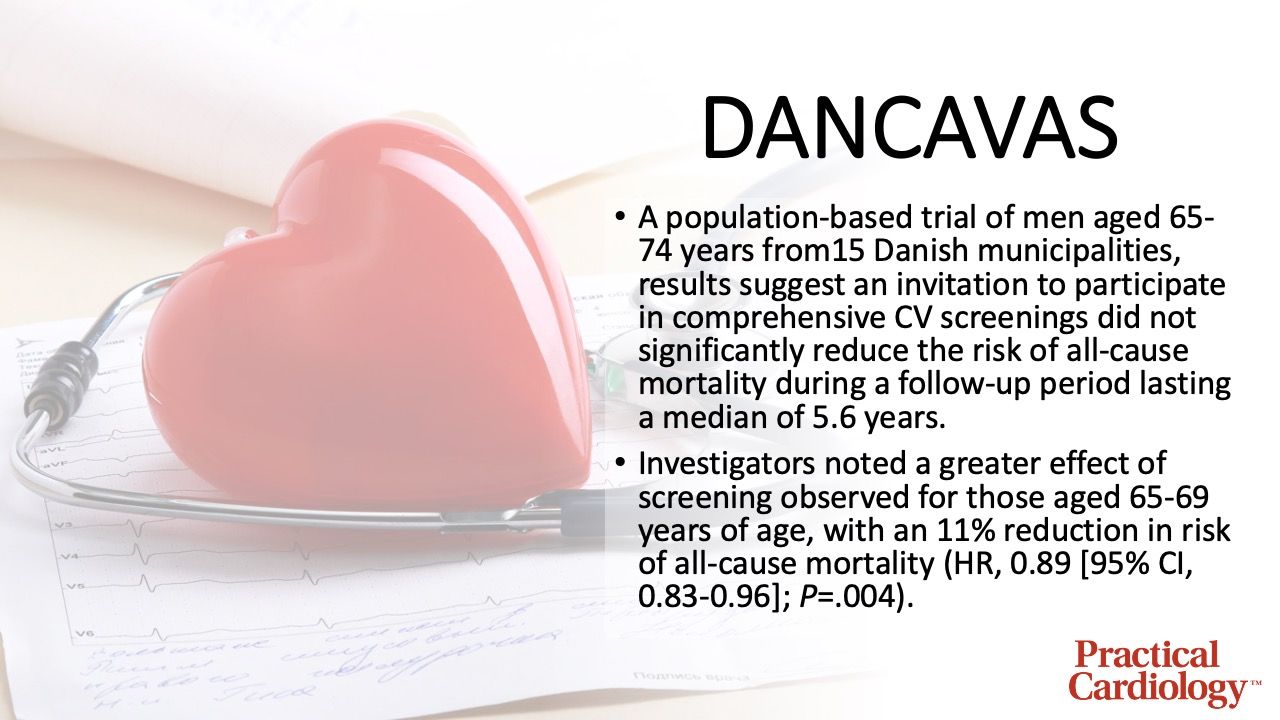Top New Trial Data at ESC Congress 2022
Although the European Society of Cardiology (ESC) Congress 2022 may be over, our editorial team is recapping the most popular new trial data from the ESC’s first in-person conference since 2019. The top 5 trials, which were chosen based on total views per article, includes DELIVER, TIME, AXIOMATIC-SSP, FIDELITY, and DANCAVAS.
1. Dapagliflozin Proves HFpEF Benefit in DELIVER Trial
Less than 3 months after AstraZeneca announced the trial had met its primary endpoint back in May, full results of DELIVER were presented at ESC Congress 22. Results of the DELIVER trial indicate use of dapagliflozin (Farxiga) was associated with an 18% reduction in the primary outcome, with a 21% reduction in risk observed for worsening heart failure and a 12% reduction in risk observed for cardiovascular death compared with placebo therapy. Results of the study build on the evidence from previous dapagliflozin trials contribute to the idea that the benefits seen in HFpEF could be a class effect for SGLT2 inhibitors.
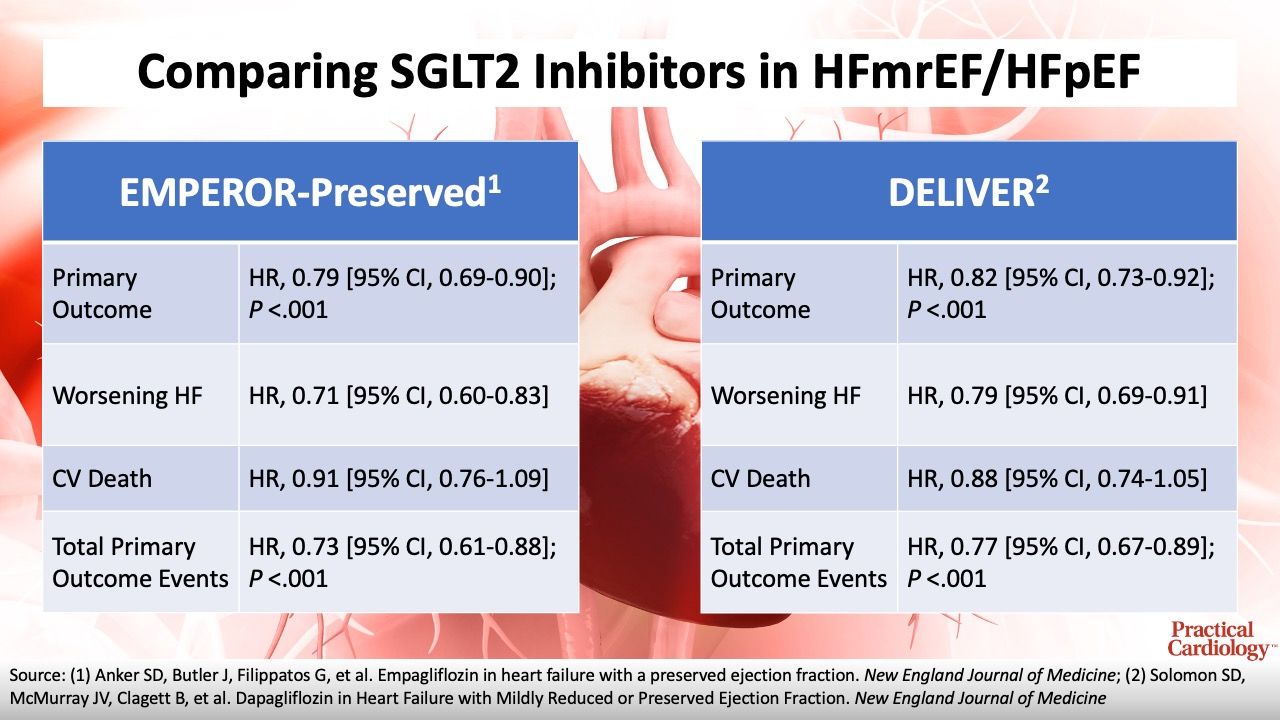
2. TIME Study: No Added Benefit from Nighttime Dosing of Blood Pressure Medications
Although the Hygia study produced evidence suggesting nocturnal dosing could improve outcomes, results of the randomized trial, which included 21,104 patients followed for more than 5 years, demonstrate evening dosing did not result in a significant difference in cardiovascular outcomes among patients with hypertension included in the trial compared to standard morning dosing.
“People with high blood pressure should take their regular antihypertensive medications at a time of day that is convenient for them and minimizes any undesirable effects,” said lead investigator Professor Thomas MacDonald.
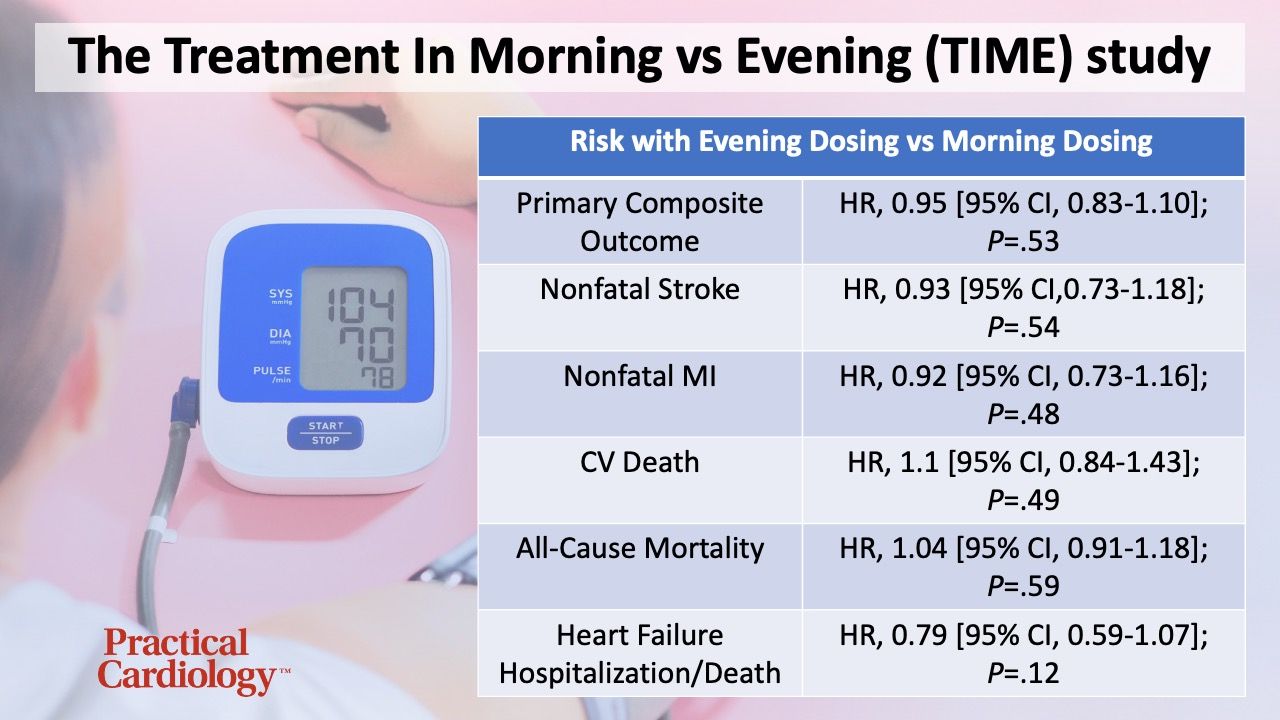
3. Milvexian Shows Promise for Preventing Stroke in Phase 2 Dose-Finding Trial
In what the European Society of Cardiology press release referred to as the largest dose-finding trial of an anticoagulant in a stroke population, the phase 2 AXIOMATIC-SSP trial provides evidence suggesting use of milvexian in patients with a prior ischemic stroke or high-risk transient ischemic attack could reduce risk of stroke without an increase in clinically significant bleeding events.
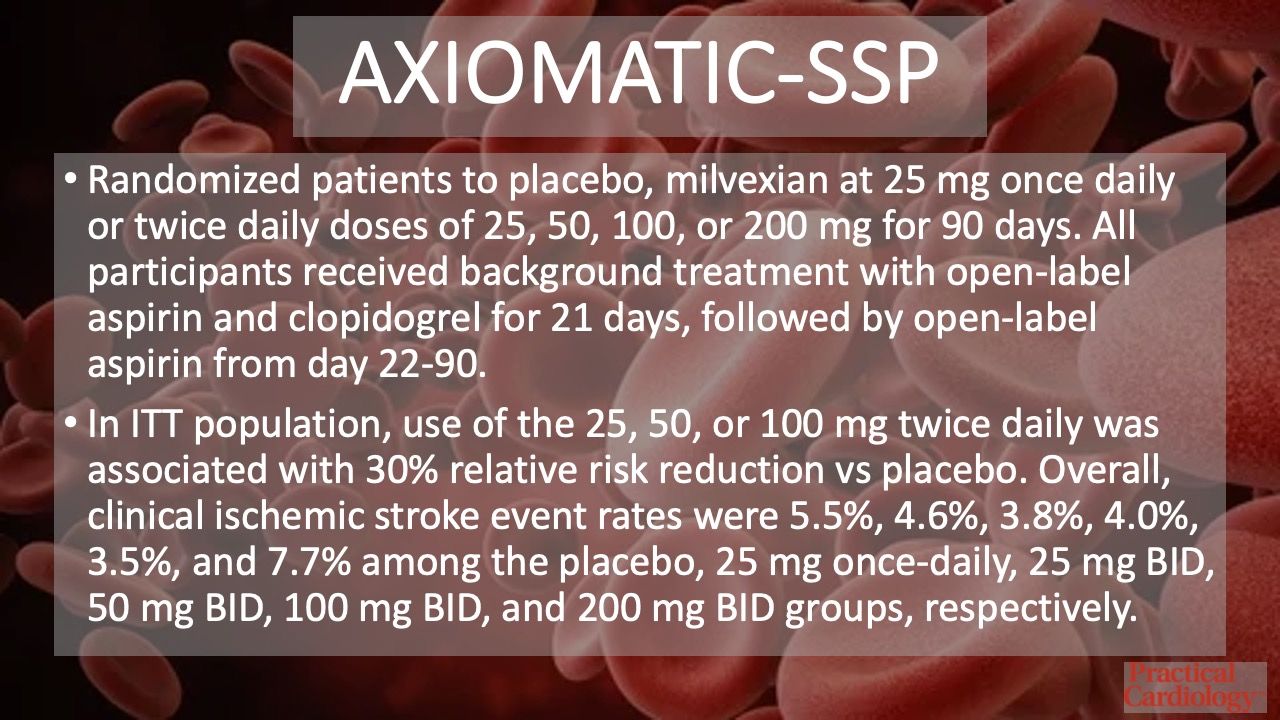
4. Finerenone Reduces All-Cause Mortality, Sudden Cardiac Death in Type 2 Diabetes
With pooled data from the FIDELIO-DKD and FIGARO-DKD trials, an analysis of the FIDELITY program from ESC Congress 2022 details an 11% reduction in risk of all-cause mortality and a 25% reduction in risk of sudden cardiac death among patients with type 2 diabetes and chronic kidney disease.
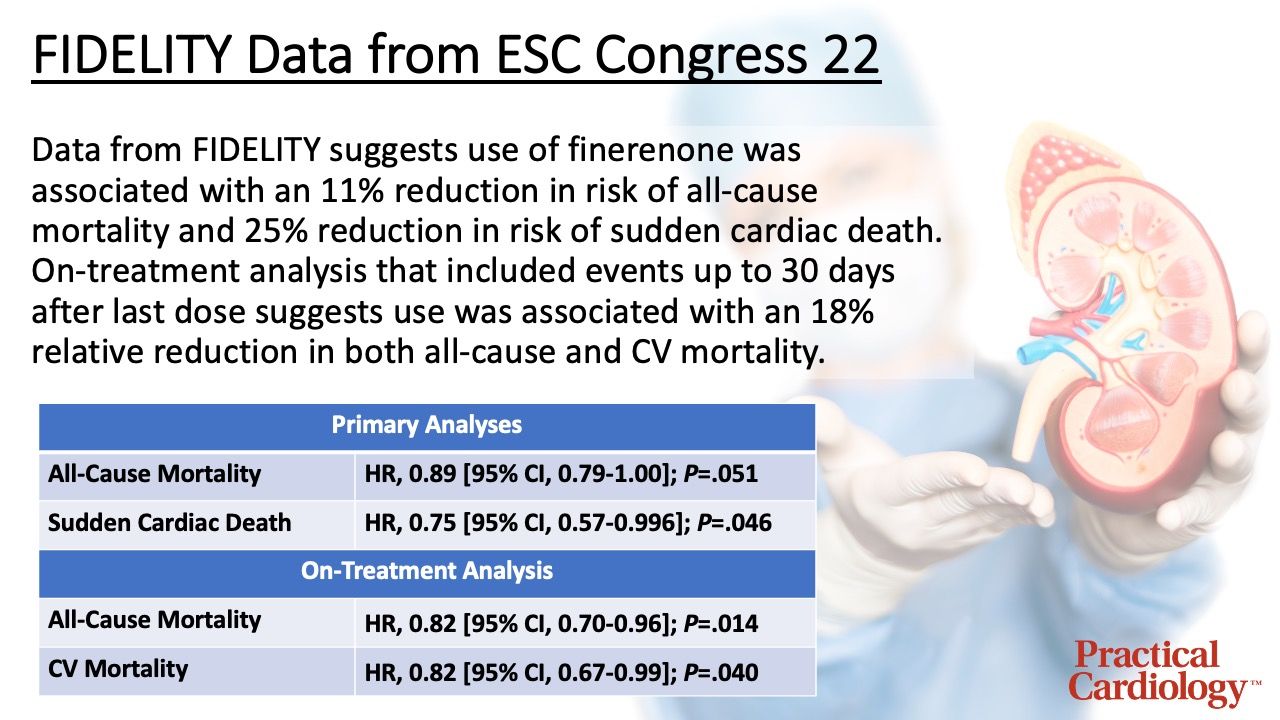
5. DANCAVAS: Universal CVD Screenings Do Not Reduce Risk of Death in Men
Results of a population-based trial assessing the impact of universal subclinical CVD screenings among men aged 65-74 years living in 15 Danish municipalities found increased screenings did not significantly reduce the risk of all-cause mortality in men aged 65-74 years over the next 5 years.
